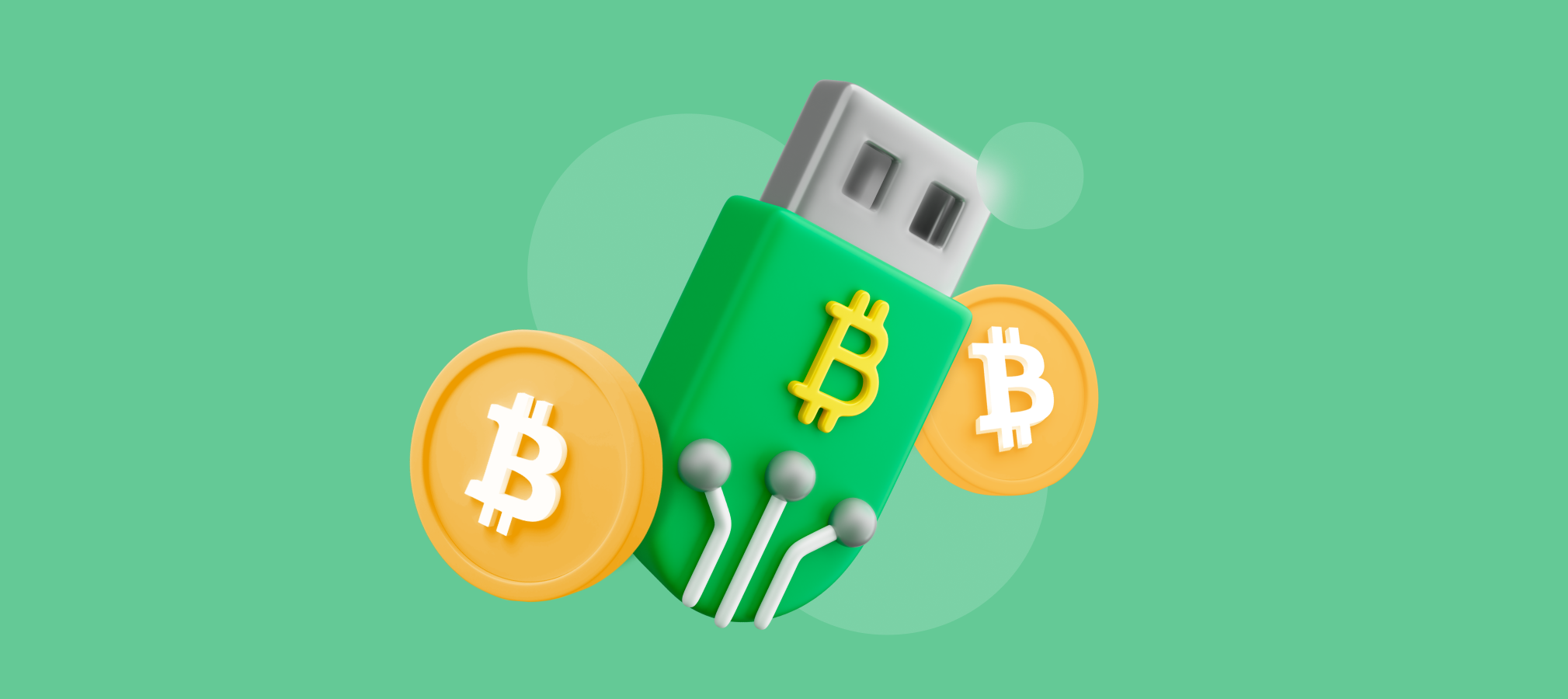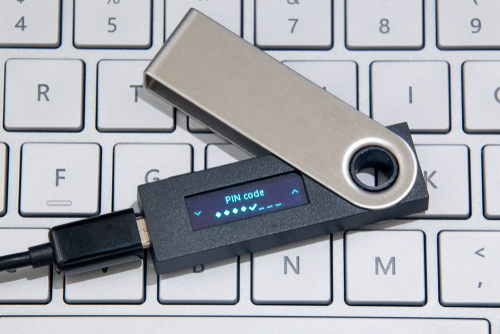Hardware Wallets And Cold Storage

This blog post will cover:
- What is a hardware wallet?
- How do hardware wallets work?
- Hardware wallet pros
- Hardware wallet cons
- Hardware vs Software wallets — difference explained
- What’s crypto cold storage?
- Conclusion
What is a hardware wallet?
There are many different types of wallets for your cryptocurrency. Hardware wallets are the alternate way of storing private keys offline usually coming in the form of tiny plug-in devices. They are providing crypto holders with an opportunity to store their private keys which allow them to access their crypto. Compared to PCs, smartphones, or storing data on the Internet, hardware wallets are considered to be more secure. The only situation a thief could rob the keys would be by stealing the user’s gadget (hardware wallet) and getting through all the security measures.
How do hardware wallets work?
Hardware wallets keep private keys; simply said, it’s the location of coins on the blockchain. They provide safety by being hard to hack — as no data is kept on the net. To start using a hardware wallet, a person needs to:
- Purchase a hardware wallet. You can do your own research to find the one that fits you best. The most well-known are Trezor and Ledger. Please check if you are buying it from the official vendor!
- Install the software. Every brand has its own programs necessary for setting up your wallet. Make sure to download it from the official website and follow the instructions provided there.
- Write down your seed phrase. Don’t use messages or photos, do it offline.
- Move crypto to your wallet (optional). Usually hardware wallets do not allow users to buy crypto with fiat, so you can just transfer crypto to your wallet directly.
Once everything’s ready, your private keys will be placed in the hardware wallet in complete safety. Of course, you’ll be provided with various additional options to increase security, via passwords, for example.

Hardware wallet pros
Having a hardware crypto wallet undoubtedly has a few advantages that include:
- SecurityAn unmatched privacy level permits to store private keys without any risk for the users.
- IndependenceIf you boil it down, crypto is about taking your life into your own hands. The situation when you don’t have to rely on a centralized institution to keep your keys safely, or even on a personal computer, undoubtedly, increases freedom and independence.
- ConvenienceHardware wallets are generally tiny, and it’s making them a lot easier to move than say a desktop, and perfect for traveling as well.
Hardware wallet cons
- High costHardware wallets are the most expensive, so not everyone will be able to afford them.
- Less convenient for day-to-day transactionsMostly, hardware wallets are good for long-term storage. If you need to make transactions on a daily basis, it could be a little bit uncomfortable to use this type of wallet.
Hardware vs Software wallets — difference explained
The main difference between hard and software wallets is that hardware wallets are physical devices, and software ones are stored online in the cloud, locally on a PC or a mobile. Also, hardware wallets are considered to be “more secure” as it’s stored offline, which in turn means that it’s not accessible to online hackers.
However, software wallets are usually free, meanwhile the price of their hardware competitors can range from $100-$300. In addition, it’s more convenient to reach your wallet if it’s a software one — you just have to turn your PC or phone on. Some users claim that storing keys on a software wallet means you depend on a 3d party, meanwhile having them on a hardware wallet delivers more self-sufficiency.
Both options include some trade-offs, and your keys’ security mostly depend on you and your accuracy. Just choose what you think is better for you.
What’s crypto cold storage?
Cold storage is a method used to keep your private keys, it means you take your keys offline and put them on some real medium usually coming in the small size. Let’s take a look at some cryptocurrency cold storage methods:
Sound Wallets
Sound wallets are a niche topic in crypto. Often delivered with a hefty cost, users encrypt the private keys in audio files, CDs or similar, which can only be found and decoded with highly-priced machinery.
Deep Cold Storage
Deep cold storage is one the highly reliable schemes to store your crypto. It involves putting your hardware wallet in a safe place, like an underground. Nevertheless, if your assets aren’t accessible, you’ll face a lot of hassle to retrieve it. To call it inconvenient would be putting it mildly, it’s advisable for people who need to store a big amount of money.
Paper Wallets
Just what it sounds like — paper wallets are paper pieces where the public and private keys are kept. There is software that securely generates a pair of keys which are printed in the form of QR code. QR code is included to make transacting simpler. This method may be not the safest, as it’s comparatively effortless to lose or ruin. But if you do use it, make sure to save paper wallets away from any risk.
Hardware Wallets
Hardware wallets are coming in the size of USBs. You can store private keys on them, some of them are waterproof and wireless, with various security options included.
But what happens when you put cryptocurrency in cold storage? There, coins are safe and sound and they are available for usage at the same time (however, it could be a bit tricky to get the device out of the ground or a CD). You’ll receive a recovery phrase as well as public and private keys with which you can get to your funds and transact.
Conclusion
Hardware wallets are a good alternative for storing private keys and if you realize the tradeoffs it could be the right choice for you. Some good options to check out if you’re interested are Ledger Nano, Trezor, and Keepkey. However, the choice is always up to you — decide on whether you want to keep your data online or offline, as both ways have their pros and cons.
If this article was useful, don’t be shy to check out our crypto texts — they all are available on SimpleSwap Blog. Let’s keep in touch and learn more about cryptocurrencies together!

